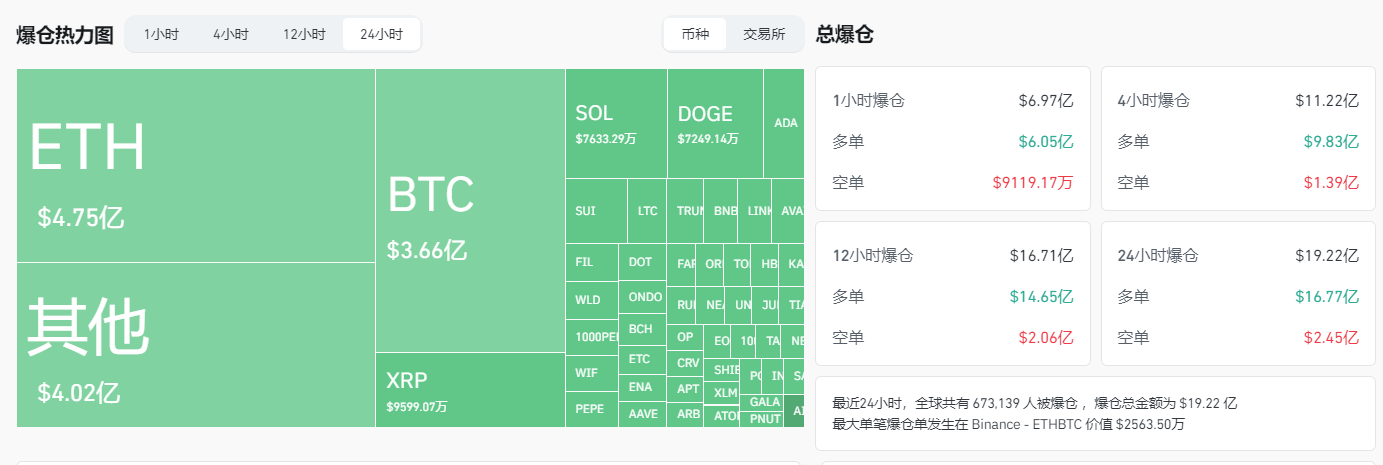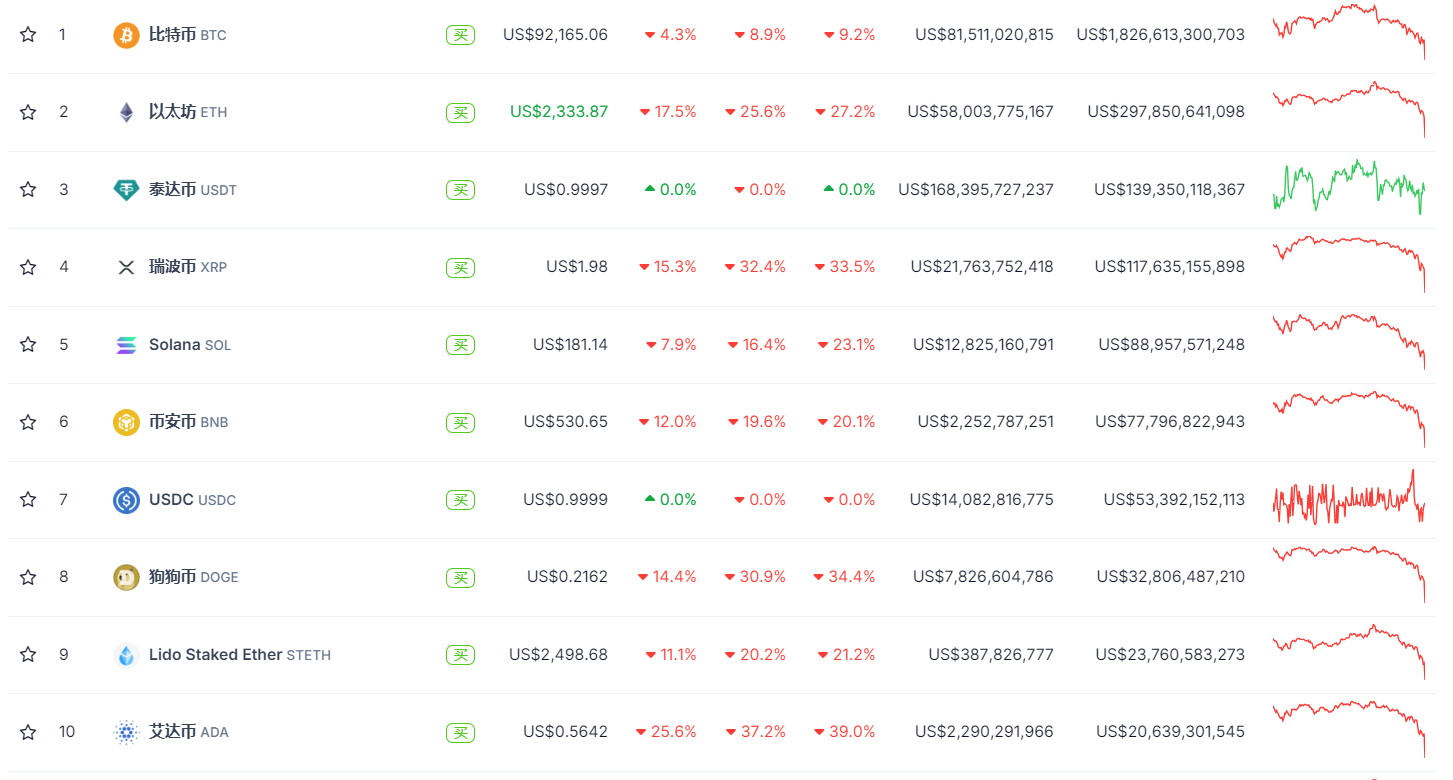Trump announces new tariffs, global markets "face a winter"
On February 1, US President Trump signed an executive order to impose a 10% tariff on goods from China, the latest trade protectionist measure that has quickly sparked widespread global opposition. There is also significant criticism within the US, with many believing this measure will further disrupt the global economy.
Furthermore, the US has also announced a 25% tariff on goods from Mexico and Canada, with Canadian energy products facing a 10% tariff.
Crypto market "hit by a cold wave"
Due to the new tariffs announced by Trump, global financial markets have been severely impacted. On Monday, after the Asian markets opened, the price of BTC plummeted more than 4%. BTC has since fallen to around $92,000, the lowest level in nearly three weeks. At the same time, other cryptocurrencies such as ETH have also suffered heavy losses.

According to data from Coinglass, in the past 24 hours, a total of 673,139 people were liquidated globally, with a total liquidation value of $1.922 billion. The largest single liquidation occurred on Binance - ETHBTC, worth $25.635 million.
Price plunge, severely damaging market confidence

BTC has fallen from a high of $106,000 to a low of $92,000 in the past four days, a drop of more than 20%. ETH has also not been spared, falling from $3,430 to $2,400, a drop of over 35%. In addition, SOL has fallen from its January 19 high of $295 to a low of $178.
Other crypto assets have also experienced a crash, with BNB falling below $550, a 24-hour drop of 18%. Doge has fallen to $0.22, a 24-hour drop of 30%. Even Trump Coin has not avoided volatility, falling to $17, a drop of nearly 20% in 24 hours.
The EU speaks out: Tariff policy creates economic uncertainty
An EU Commission spokesperson said on February 2 that the EU regrets the US decision to impose tariffs, saying this move will lead to economic turmoil and exacerbate inflation, which is detrimental to all parties. The spokesperson pointed out that open markets and adherence to international trade rules are crucial for global economic growth, and the EU will continue to promote low-tariff policies to promote economic stability.
The spokesperson emphasized: "We have not yet been informed of the impact of additional tariffs on EU products, but if this happens, we will respond firmly."
Mexico warns: Tariffs may push up car prices by $3,000
According to a warning from the National Auto Parts Industry Association (INA) of Mexico, US tariffs could lead to a $3,000 increase in the price of US cars, and is expected to reduce car sales by 1 million units. INA said that since automotive parts need to cross the borders of the three countries multiple times during the production process, tariffs will lead to an increase in production costs and may disrupt the supply chain.
The Mexican government has strongly opposed this, saying the US move violates the USMCA and harms the Mexican economy and affects the cooperation and development of the entire North American region. Mexican Economy Minister Ebrad pointed out that this decision is "extremely dangerous" and will lead to "self-harming" consequences.
Mexican federal lawmakers also said this tariff policy is "one of the most serious economic attacks", damaging Mexico's economy and sovereignty, and affecting the interests of the general public.
The American Chamber of Commerce in Mexico has also criticized the US "America First" policy, saying it will lead to regional economic instability, rising costs for businesses and consumers, and even exacerbate inflation, undermining the long-standing economic and trade relationship.
Summary:
Trump's decision to impose tariffs has not only provoked strong reactions from the international community and within the US, but has also profoundly impacted the global economy, especially the cryptocurrency market. Faced with the impact of the tariff policy, the future of the global market is full of uncertainty, and all parties have expressed their positions, calling for adherence to international trade rules and reduction of economic conflicts. For investors, this is currently a "turbulent" moment, especially in the crypto market environment, where cautious operation is particularly important.







